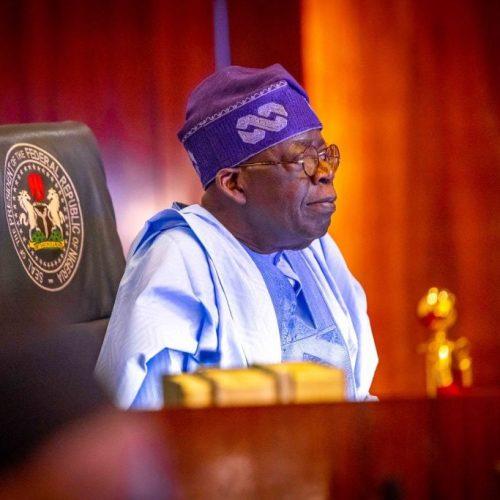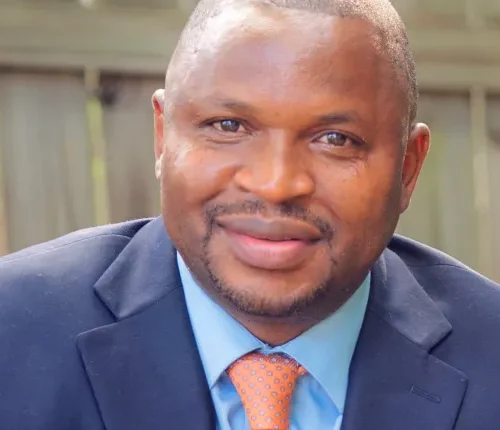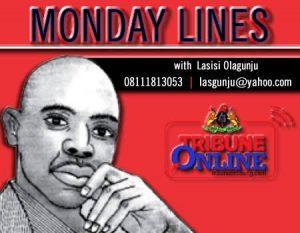Anselm and I met at Abak in the Christian year of 1980. He was then a clerk in the Treasury Cash Office Abak while I was undergoing the mandatory youth service in the town which was then part of the defunct Cross-Rivers state. The town is now in Akwa-Ibom state just a few kilometers from the state capital of Uyo. We so much bonded even though he was a fanatical supporter of Calabar Rovers while I supported the Stationery Stores. Club loyalties were far secondary in our relationship so much that he followed me to Oron on a visit to the derelict National Museum at Oron and I followed him to Edem-Obuk for the village’s Yam festival. What an eye-opener!
Now the Yam festival in any community had always been an occasion for the re-union of the natives amidst much merriment and jollification overshadowing the real import of communing with the ancestors and giving thanks to God for the abundant produce of the land; yams being the undisputed king of crops. But I’m getting ahead of myself. We passed the modest abode of Brigadier U.J. Esuene the governor of the state for nine years. The guy, along with nine of his colleagues who served under General Yakubu Gowon had their properties seized and demonized as irremediably corrupt. Alas Nigerians ain’t seen anything.
Along the potholed road and a few kilometers upfront was the thriving Akwa Steels, a behemoth employing hundreds, now in a permanent coma. And insolently situated along was the Mobil quarters, the off-limit abode of expatriates and their Nigerian collaborators tasked with the drilling of oil in the state at the Ibeno oilfields on the Atlantic just a few kilometers from Edem Obuk. On a later visit to the Mobil quarters out of curiosity, I met the corpers posted to Mobil who could care less about the fate of the ’natives’ being cynically and mercilessly exploited by Mobil and the Nigerian state. What could they do, the corpers wanted to know.
At Edem-Obuk itself the festival was in full swing. A lot of a long time no see went along with copious consumption of palm wine and foreign gin. The masquerades held onlookers hostage with age-long displays of dexterity and awe-inspiring performances. As night fell on the first day, villagers could see twinkling electric lights from the Mobil enclave but none in the surrounding communities. No potable water. The foreign predators and their local collaborators saw to that. I expressed my first unfavourable impressions to my chief host and he shrugged his shoulders in fatal resignation to the brutish existence of his people even though foreigners had taken over their lands and subjected them to this sort of nasty living. The village head who took a fancy to me said that this sort of thing would have been unthinkable in saner climes and he agreed with me that the discovery of oil has turned out to be a curse on his people.
On the second day, I paid a visit to Ibeno, the oil-producing community along the shores of the Atlantic. It put on the garments of a swinging town. Prostitutes came from far and wide to partake in the crumbs. The town even had a near-permanent disco session where all vices were permissible. Foreigners thronged the town for a piece of the action. Since I could not swim, I declined an invitation to take a speedboat to one of the subsisting Mobil facilities. A boat capsize would have been the end of me. In righteous indignation, I aligned with my fellow fire eaters that the discovery and visionless exploitation of oil would be the end of Nigeria when the exploited arose from their inexplicable slumber and demand for justice. With the cruel benefit of hindsight, this is all ‘gragra’. ‘Fantastic’ corruption fuelled no doubt by the rent mentality of oil will end the misery of this sad contraption.
Before and immediately after flag independence, stealing of public money had been discreet. Maybe it was because there was no humongous money to steal! Yet a member of the then unicameral parliament, Hon Nkaegbu spoke despondently in the House that Nigeria made life desperate for Nigerians through unbridled theft of public funds. The then high priest of corruption, the minister of Finance Okotie-Eboh established a shoe factory from undoubtedly public funds in Sapele and taxed foreign importations of shoes nearly out of existence with nary a dissent from the populace. Police collected their ‘dues’ shamefacedly. The public face of the January 1966 coup Major Kaduna Nzeogwu described the ousted politicians as 10 per centers who made Nigeria big for nothing in the comity of nations. After the horrendous revenge coup of July 1966 and descent into a 30-month civil war, corruption came into its own and metastasized. Unconfirmed reports of summary executions of the rank and file to collect their salaries were rife but there was no doubt that enormous profits from the collective misery of the nation were made by some military commanders.
Oil had been discovered before the civil war and it played a role in the hostilities on both sides but it was after the war that the nation became awash with oil wealth and General Gowon was unable to prudently manage this windfall. For him, despite Awolowo’s prudent economic management during the war, money was no longer Nigeria’s problem but how to spend it! His governors became unmanageable potentates in their enclaves. Federal commissioners stole at will. There was the celebrated case of Tarka who had to resign after public outrage. Tarka became a senator in the Second Republic. Gowon defended Gomwalk unconvincingly in the dying days of his regime before the latter faced a firing squad for his role in the Dimka coup. Diette-Spiff gave his father a sinecure post in his Rivers state prompting the cerebral columnist Gbolabo Ogunsanwo to write that “Papa has got a brand new job”. The list was endless and dispiriting. The port of Lagos was choked with a cement armada and unscrupulous foreigners and Nigerians were cashing in on this unprecedented phenomenon. It was crystal clear that Yakubu Gowon had lost the plot and a national implosion was imminent.
It was this atmosphere of disequilibrium that enabled Gowon’s ouster. A “born again” Murtala Mohammed mounted the saddle and Nigerians breathed a sigh of relief. Notwithstanding his horrible records and the corruption baggage he carried, Nigerians had no option. Before assassins ended his life, he had vowed to go to court and contest Obarogie Ohonbamu’s claim of his moral reliability to lead an anti-corruption crusade. Nevertheless, his gale of retirements and confiscations endeared him to his countrymen. His predecessor was looking over his back until he handed power to civilians in a disputed election that did not augur well for the Second Republic. The prognosis of the fate of the republic was proved right by the immoral and amoral behavior of the politicians who seemed to have learned absolutely nothing from the past.

After a controversial presidential victory at the polls, the politicians were intent on gaining lost time when the soldiers ruled the roost for thirteen years. They shared positions and proceeded to loot the national till with reckless and irresponsible abandon. It became a fad to set fire to the accounts departments of looted edifices. The commonplace things of life became “essential commodities” under the supervision of a minister. Awolowo warned with undeniable statistics of a looming iceberg that the nation was heedlessly heading for. When it was time to ‘share the meat’, the president whose initial ambition was to be a senator was advised to go ‘upstairs’. An iconic picture of those days was the president’s visit to the burning NITEL office before jetting out to India for an inconsequential visit. They had the oil money to lubricate their gorging frenzy.
You do not need to have your ears glued to the ground to sense a Jerry Rawlins and the senior ranks of the army moved in less than five years into the life of the administration to stave off a mid-level or junior-level backlash to put an end to the shenanigans. Preventing a bloodbath that will most likely consume the military top brass is no recipe for a national malady. The new men had their own dark agenda which the politicians made very easy. They provided the rope with which they were hanged. And no tears were shed for them.
In a celebrated interview in ‘The News’ magazine, Babangida said that the elevation of Buhari was a collective decision of the 31st of December coup makers. Subsequent events proved the ambitious fellows right when unforced errors of the new regime began to unfold and the politically ambitious elements in the Supreme Military Council bided their time to oust the politically naïve but parochial fellow out. But they failed to reckon with the Principal Staff Officer 1 to the late Muritala Mohammed in the person of Tunde Idiagbon.
TO BE CONTINUED.
Mr Afolabi Akinbola sent this piece from Ibadan, Oyo State, Nigeria. He can be reached at akinbolaafolabi152@gmail.com

















